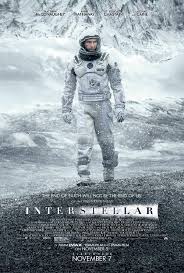
Review
My Review of the Movie Interstellar: A Journey Beyond Earth
“Imagination will often carry us to worlds that never were, but without it, we go nowhere.” – Carl Sagan
Movies can take us to places we have never seen, make us feel emotions we have never felt, and help us imagine things we have never thought of before. Among all the great movies that do this, Interstellar, directed by Christopher Nolan, stands out because it combines science fiction with a really emotional story.
The Story: A Fight to Save Humanity
At its core, Interstellar is about the survival of humanity. In the movie, Earth is becoming unlivable due to failing crops and climate change. NASA discovers a wormhole near Saturn that could lead to a new planet where humans can live. The movie follows Cooper, a former NASA pilot, and his team as they travel through this wormhole to find a new home for humanity. But Interstellar is not just about space travel; it’s a story about love, sacrifice, and the strong connections between family members.
“Love is the one thing we’re capable of perceiving that transcends dimensions of time and space.”
This quote from the movie explains one of its main ideas. While the characters are dealing with things like black holes and time moving differently in space, the heart of the story is about the love between Cooper and his daughter, Murphy. Their bond holds the emotional weight of the movie, reminding us that love can survive no matter how far apart we are or how much time has passed.
The Science: A Mix of Fact and Fiction
What makes Interstellar different from other sci-fi movies is how carefully it uses real science. The filmmakers worked with physicist Kip Thorne to make sure that things like black holes, wormholes, and time dilation (how time moves differently in space) were scientifically accurate. The black hole in the movie, Gargantua, looks amazing and gives us an idea of what the strange world of relativity could be like.
Even though the movie covers some really complicated science, it explains it in a way that’s easy to follow. Whether you’re into science or just like a good story, Interstellar balances scientific facts with emotional, human moments.
“We used to look up at the sky and wonder at our place in the stars. Now we just look down and worry about our place in the dirt.”
This quote from Cooper really stuck with me. It talks about how humans used to dream about exploring space, but now we’re just focused on surviving. The film makes us think about our own future and whether we should be content with life on Earth or aim for the stars.
The Visuals and Music: A Cinematic Masterpiece
Visually, Interstellar is stunning. The scenes showing space, the alien planets, and the cosmic events are breathtaking. The visual effects even won an Academy Award, which makes sense because the movie is a work of art in every frame.
But what really stands out is Hans Zimmer’s musical score. The haunting organ music adds depth to the movie, making the vastness of space feel even more emotional. The music doesn’t just add to the movie—it enhances it, making every scene more powerful and memorable.
The Good and the Confusing
One of the best things about Interstellar is how it connects science with emotions. The idea that time moves slower in some places in space becomes a heartbreaking reality in the movie. When Cooper spends just a few hours on one planet, years go by on Earth, and he misses out on huge parts of his children’s lives. This makes the concept of time dilation not just scientific, but deeply emotional.
On the other hand, some parts of the movie, especially near the end when Cooper enters the black hole and experiences a new dimension, can be a bit confusing. Also, the movie is almost three hours long, which might be too long for some people.
Final Thoughts: A Film Worth Watching
“Do not go gentle into that good night, old age should burn and rave at close of day; rage, rage against the dying of the light.”
This powerful poem by Dylan Thomas is repeated throughout the movie, and it perfectly captures the film’s message: fight for survival, fight for your loved ones, and never give up, no matter how hard things get.
By: Maryam Khan
Write and Win: Participate in Creative writing Contest & International Essay Contest and win fabulous prizes.


